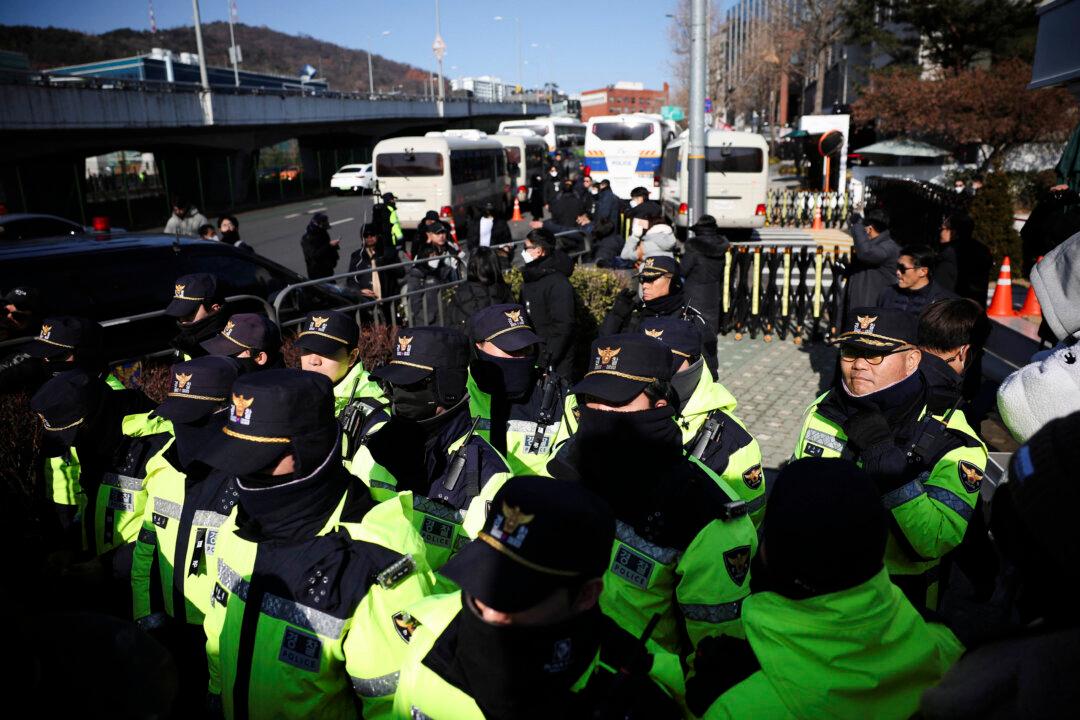South Korean presidential guards prevented investigators from detaining suspended President Yoon Suk Yeol on Jan. 3 after an hours-long standoff at the presidential residence.
Yoon is under investigation for insurrection following his short-lived martial law declaration on Dec. 3. The warrant to detain Yoon was issued after he failed to comply with all three summonses for questioning.





